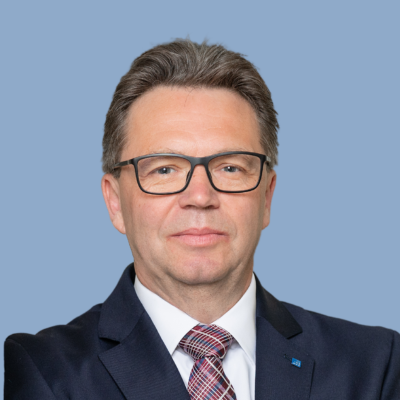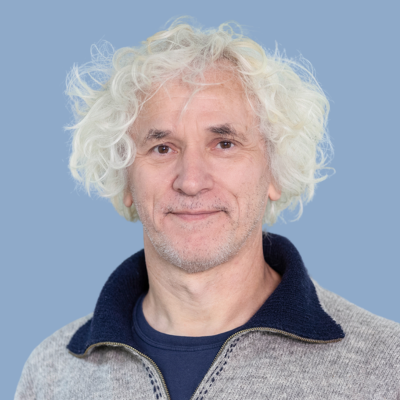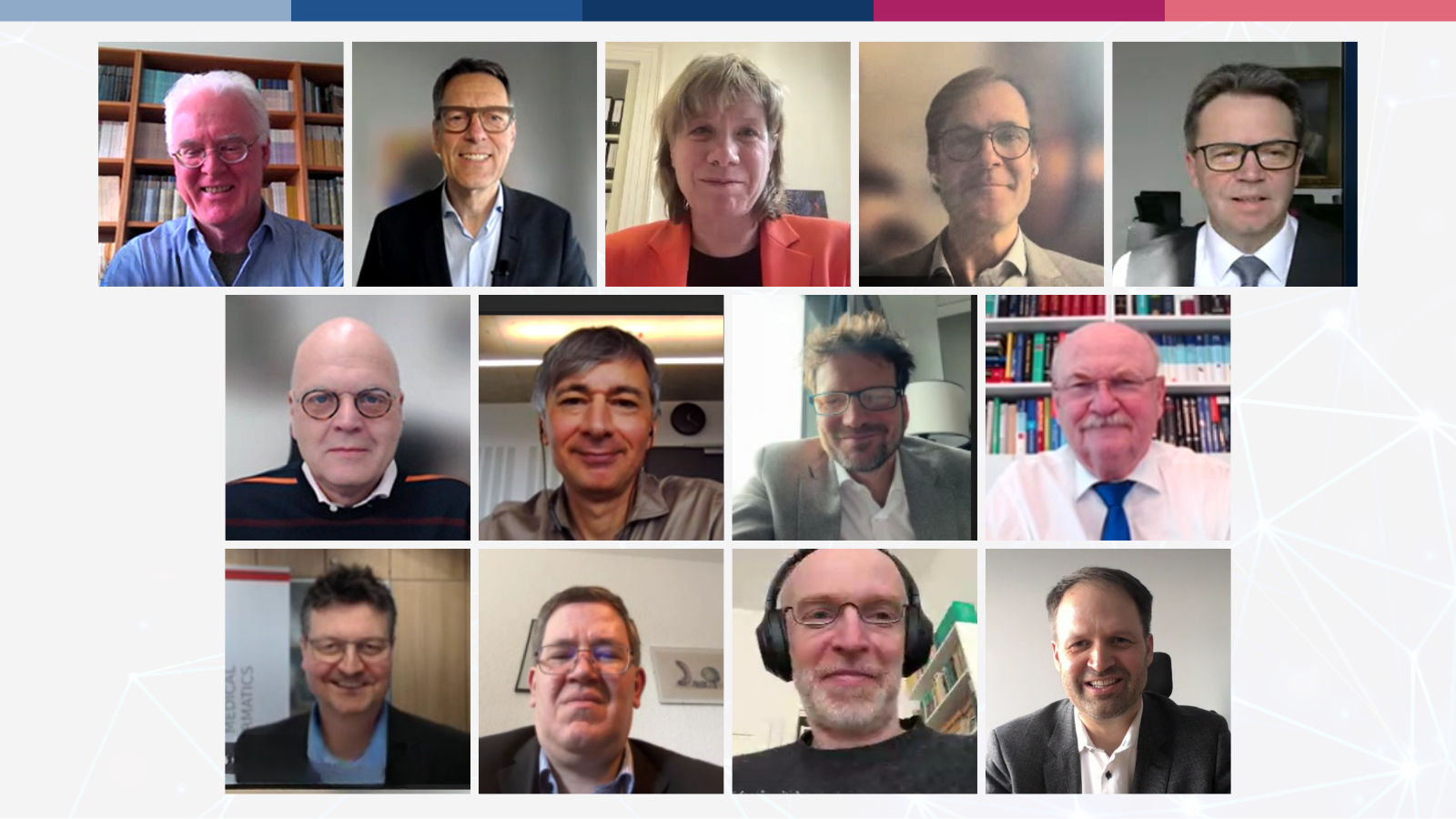New research center develops innovative methods for improved healthcare
In their first meeting on March 14, the Supervisory Board of the Lower Saxony Center for AI and Causal Methods in Medicine (CAIMed) was constituted. Dr. Georg Schütte, Secretary General of the Volkswagen Foundation, and Rüdiger Eichel, Head of the Department of Research, Innovation and Europe at the Ministry of Science and Culture of Lower Saxony, took over the chairmanship. The Supervisory Board also includes Prof. Dr. Wolfgang Brück, Spokesman of the Executive Board of the University Medical Center Göttingen, Prof. Dr. Volker Epping, President of Leibniz Universität Hannover, Prof. Dr. Metin Tolan, President of the University of Göttingen, Prof. Dr. med. Michael P. Manns, President of Hannover Medical School and Prof. Dr. Josef Penninger, Scientific Director of the Helmholtz Centre for Infection Research.
At the meeting, the newly constituted Supervisory Board appointed the CAIMed Board of Directors, consisting of Prof. Dr. Wolfgang Nejdl (Spokesperson), Prof. Dr. Michael Marschollek, Prof. Dr. Ramin Yahyapour, Prof. Dr. Niels Grabe, Prof. Dr. Michael Meyer-Hermann and Dr. Johannes Winter (Managing Director).
Pictured from left to right: Prof. Dr. Wolfgang Nejdl, Dr. Georg Schütte, Prof. Dr. Anke Holler (standing in for Prof. Dr. Metin Tolan), Prof. Dr. Thomas Pietschmann (standing in for Prof. Dr. Josef Penninger), Prof. Dr. Volker Epping, Prof. Dr. Wolfgang Brück, Prof. Dr. Ramin Yahyapour, Prof. Dr. Niels Grabe, Prof. Dr. med. Dr. Wolfgang Brück, Prof. Dr. Ramin Yahyapour, Prof. Dr. Niels Grabe, Prof. Dr. med. Michael P. Manns, Prof. Dr. Michael Marschollek, Dr. Andreas May (standing in for Rüdiger Eichel), Prof. Dr. Michael Meyer-Hermann, Dr. Johannes Winter
Statements of the Supervisory Board

Rüdiger Eichel, Lower Saxony Ministry for Science and Culture
Rüdiger Eichel, Head of the Research, Innovation, Europe Department at the Lower Saxony Ministry of Science and Culture, adds: "Artificial intelligence and other digital technologies are key drivers of the shift towards increasingly personalized medicine. CAIMed can contribute to the rapid and low-threshold transfer of findings into patient care through the exemplary combination of life science and data science expertise and a variety of care-relevant medical use cases. This makes CAIMed a role model and beacon for interdisciplinary and translational networking of research made in Lower Saxony."
"If we want to take advantage of the opportunities offered by artificial intelligence, we need to master the technologies and develop them further. The CAImed network brings together expertise from different locations. Together, we can put Lower Saxony on the map of AI research and attract talent from all over the world," says Dr. Georg Schütte, Secretary General of the Volkswagen Foundation.

Dr. Georg Schütte, VolkswagenStiftung

Prof. Dr. Volker Epping, Leibniz University Hannover
"The knowledge- and data-based personalization of therapy is one of the topics of the future in medicine. AI can be used to identify highly complex correlations, patterns and causalities and to combine and analyze large amounts of data in the shortest possible time. With CAIMed, we have founded an innovative research center that strengthens our competencies by networking methodical AI research, medical informatics and basic medical research. Thanks to the proven expertise of the scientists at our locations in the Hannover-Braunschweig-Göttingen metropolitan region, we will significantly improve healthcare in the future," says Prof. Dr. Volker Epping, President of Leibniz University Hannover.
"CAIMed opens up fascinating prospects for merging data science and medicine. In Göttingen, we will initiate groundbreaking research projects to tap into the potential of AI for more precise diagnoses and personalized therapeutic approaches," says Prof. Dr. Metin Tolan, President of the University of Göttingen

Prof. Dr. Metin Tolan, University of Göttingen

Prof. Dr. Wolfgang Brück, The University Medical Center Göttingen
"In addition to the development of artificial intelligence methods, our focus is on their transfer to clinical application. The goal of our research is to use KI to improve decision making and therapy in the treatment of patients. This will significantly increase the performance of our healthcare system in the future," says Prof. Dr. Wolfgang Brück, spokesperson for the University Medical Center Göttingen.
"CAIMed will lead healthcare, research, teaching and training into a new era by pooling data science expertise in our metropolitan region. Almost all areas of medicine are affected, from molecular medicine to imaging procedures in radiology and histopathology to the application and development of endoscopic and robot-assisted surgical procedures," says Prof. Dr. Michael Manns, President of Hannover Medical School.

Prof. Dr. Michael Manns, Hannover Medical School

Prof. Dr. Josef Penninger, Helmholtz Centre for Infection Research
"Personalized infection medicine is becoming increasingly important in the treatment of infectious diseases and is also being further expanded at the HZI. This generates large amounts of data, for whose detailed evaluation and decoding of new correlations artificial intelligence is absolutely essential. The participation of three of our scientists in CAIMed opens up completely new opportunities for cooperation with clinicians, data scientists and AI experts in order to advance modern, patient-centered medicine and conduct cutting-edge research," says Prof. Josef Penninger, Scientific Director of the Helmholtz Centre for Infection Research (HZI).


